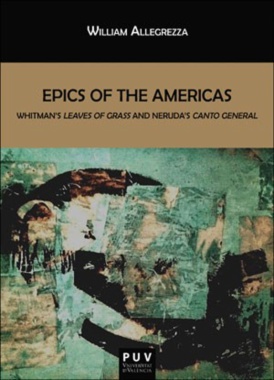Whitman wanted to bolster the American democratic spirit by creating a democratic literature through his Leaves of Grass, he also wanted to create something epic, so he crafted a new form, the lyric-epic. Pablo Neruda wrote Canto general as a foundational text for communism in Latin America. In both books, these poets want to politicize the reader, Whitman for democracy and Neruda for communism, both of which have become foundational poets for their countries over time. Whitman volia reforçar l'esperit democràtic nord-americà creant una literatura democràtica a través de les seues Leaves of Grass, i volia crear alguna cosa èpica, així que va produir una nova forma, allò líric-èpic. Pablo Neruda va escriure Canto general com a text fundacional per al comunisme a Amèrica Llatina. En tots dos llibres, aquests poetes volen polititzar el lector, Whitman per la democràcia i Neruda pel comunisme, i tots dos s'han convertit en poetes fundacionals per als seus països amb el pas del temps.
- Halftitle Page
- Title Page
- Copyright Page
- Table of Contents
- Brief Introductory Note
- The Lyric-Epic Tradition and Literary Sourcebooks
- Whitman, the Local “Loco-Foco”
- Camaraderie and the Union: Whitman’s Manly Love
- Whitman and History’s Cyclical, Linear Stasis
- Whitman and Poetics
- Neruda’s Latin American Politics
- Camaraderie, Unity, Communism in Canto general
- History and Redemption: Neruda in Creation
- Neruda and Poetics
- Conclusion
- Bibliography
- Biblioteca Javier Coy d’ estudis nord-americans

